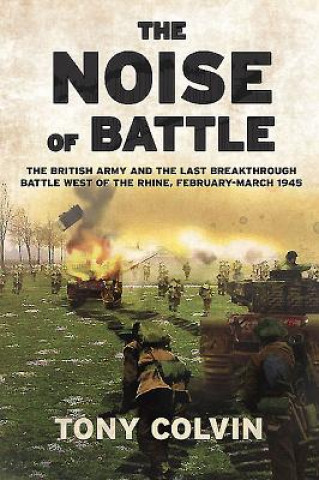
Kód: 09257867
Noise of Battle
Autor Tony Colvin
Half of the book is a detailed description, mainly told in the words of participants, of three battles fought over four days in the Rhineland south of Goch between 27 February and March 2 1945. The battles were between 3rd Divisio ... celý popis
- Jazyk:
 Angličtina
Angličtina - Vazba: Pevná
- Počet stran: 824
Nakladatelství: Helion & Company, 2016
- Více informací o knize

2205 Kč
Dostupnost:
50 % šance Máme informaci, že by titul mohl být dostupný. Na základě vaší objednávky se ho pokusíme do 6 týdnů zajistit.
Máme informaci, že by titul mohl být dostupný. Na základě vaší objednávky se ho pokusíme do 6 týdnů zajistit.Prohledáme celý svět
Mohlo by se vám také líbit
-
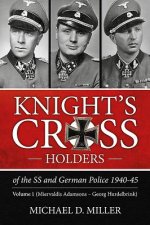
Knight'S Cross Holders of the Ss and German Police 1940-45
1672 Kč -
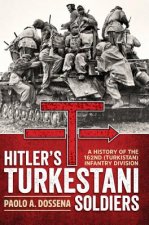
Hitler'S Turkestani Soldiers
1369 Kč -

Tunes of Blood & Iron
673 Kč -
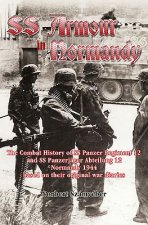
Waffen-Ss Armour in Normandy
2205 Kč -

From Brittany to the Reich
700 Kč -

Jocks, Dragons and Sospans
1686 Kč -

Patton's Vanguard
1682 Kč -
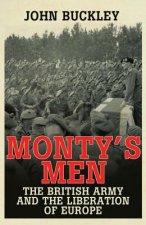
Monty's Men
479 Kč -

Battle of Cuito Cuanavale
997 Kč -

Smoke at Dawn
693 Kč -

Zuke 'Em-The Colle Zukertort Revolutionized
935 Kč -

Teaching Mindfulness Skills to Kids and Teens
2753 Kč -
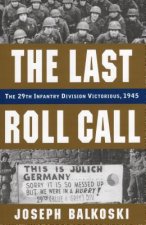
Last Roll Call, the
769 Kč -

Smoke at Dawn
465 Kč -
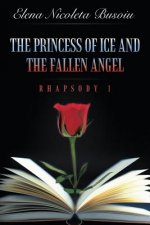
Princess of Ice and the Fallen Angel
447 Kč -

Mobile Suit Gundam: The Origin Volume 9
711 Kč -

Green Building, Materials and Civil Engineering
13409 Kč -
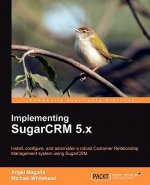
Implementing SugarCRM 5.x
1532 Kč -
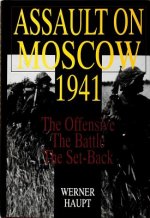
Assault on Mcow 1941: The Offensive, The Battle, The Set-Back
846 Kč -
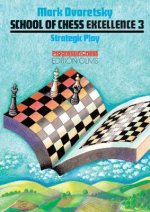
School of Chess Excellence 3
594 Kč -

Zhukov's Greatest Defeat
894 Kč -

Killer Angels
638 Kč -
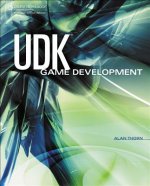
UDK Game Development
1658 Kč -

Shack
323 Kč -

Ancient Trees
1008 Kč -

Fateful Lightning
693 Kč -

Christopher Isherwood Diaries Volume 1
1078 Kč -

Der Kampf um Norddeutschland
937 Kč
Dárkový poukaz: Radost zaručena
- Darujte poukaz v libovolné hodnotě a my se postaráme o zbytek.
- Poukaz se vztahuje na celou naši nabídku.
- Elektronický poukaz vytisknete z e-mailu a můžete ihned darovat.
- Platnost poukazu je 12 měsíců od data vystavení.
Informovat o naskladnění knihy
Zadejte do formuláře e-mailovou adresu a jakmile knihu naskladníme, zašleme vám o tom zprávu. Pohlídáme vše za vás.
Více informací o knize Noise of Battle
Nákupem získáte 221 bodů
 Anotace knihy
Anotace knihy
Half of the book is a detailed description, mainly told in the words of participants, of three battles fought over four days in the Rhineland south of Goch between 27 February and March 2 1945. The battles were between 3rd Division supported by 6 Guards Armoured Brigade, and 8. Fallschirmjager Division. For the first time the combined actions of over 50,000 men during 96 hours have been analysed from the ground up in an unprecedented attempt to provide understanding of a significant military event. 3 Scots Guards said of Winnekendonk, "It is suggested that this will surely rank as one of the finest small scale tank/infantry battles ever executed and well worthy of more close study." The fighting was bloody and heroic, and some controversial aspects are explained for the first time. The other half of the book is an analysis of the units and people involved in the two divisions and their supporting armour and aviation. An answer is provided as to why only two months before the end of hostilities, 21 Army Group could manage only quite slow and costly progress. The answer comes from the analysis, and is tested through comparison with the contemporary Canadian Operation Blockbuster, and with two battles in the Hitler Line. Evidence is provided that there is no truth to recent claims that Montgomery's generalship was efficient and saved lives. Instead, it is shown that the military hierarchy, including Churchill, ignored the all-arms operational methodology under unitary command which Sir John Monash had developed to bring victory in 1918. In the Second World War, by contrast, the Royal Armoured Corps and 2 TAF never integrated with the infantry and artillery, and were never suitably equipped, being bound to the cultic pursuit of mobility. General Elles required that the Infantry Tank be immune to all German anti-tank guns, and his Matilda II was a major reason for the deliverance from Dunkirk and for the success of Operation Compass in North Africa. Compared with the Hundred Days of 1918, the author suggests that the British Armed forces in 1945 were relatively less efficient in all respects except that of killing German civilians in area bombing. This book's fully documented and researched conclusions provide a new and controversial interpretation of 21 Army Group.
 Parametry knihy
Parametry knihy
Zařazení knihy Knihy v angličtině Humanities History Military history
2205 Kč
- Plný název: Noise of Battle
- Podnázev: The British Army and the Last Breakthrough Battle West of the Rhine, February-March 1945
- Autor: Tony Colvin
- Jazyk:
 Angličtina
Angličtina - Vazba: Pevná
- Počet stran: 824
- EAN: 9781910777114
- ISBN: 1910777110
- ID: 09257867
- Nakladatelství: Helion & Company
- Hmotnost: 1544 g
- Rozměry: 185 × 253 × 49 mm
- Datum vydání: 30. June 2016
Oblíbené z jiného soudku
-

With the Old Breed
224 Kč -

SS Dirlewanger Brigade
358 Kč -

Mediterranean Air War, 1940-1945
1520 Kč -

Wars of the Roses
401 Kč -
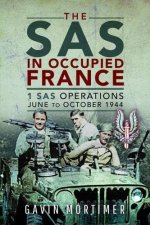
SAS in Occupied France
677 Kč -

Armies of Europe Illustrated
716 Kč -

Soviet Cruise Missile Submarines of the Cold War
499 Kč -

Black Prince And The Sea Devils
1040 Kč -

Truth About The Wunderwaffe
1126 Kč -

Kill Anything That Moves
459 Kč -

Helmet for my Pillow
356 Kč -

Forgotten Highlander
356 Kč -

TM 9-803 Willys-Overland MB and Ford Model GPW Jeep Technical Manual
458 Kč -

With the Old Breed
410 Kč -

Sleepwalkers
542 Kč -

Panzerkampfwagen Tiger Ausf.B
623 Kč -

D-Day
277 Kč -

War that Ended Peace
290 Kč -

Second World War
794 Kč -

Band Of Brothers
268 Kč -

American Sniper
302 Kč -

Battles Map by Map
848 Kč -

Brothers in Battle, Best of Friends
384 Kč -

Eastern Approaches
356 Kč -

Citizen Soldiers
356 Kč -
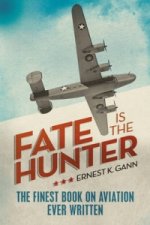
Fate is the Hunter
302 Kč -

Shattered Sword
740 Kč -

Panzerjager on the Battlefield
703 Kč -

Fairbairn-Sykes Commando Dagger
436 Kč -

Templars
329 Kč -

Bravo Two Zero
323 Kč -

Us Forces in Vietnam 1968 - 1975
592 Kč -

Military History Book
810 Kč -

Lost Victories
596 Kč -

The Second World War
487 Kč -

Hirohito and the Making of Modern Japan
410 Kč -

T-34 on the Battlefield. Volume 2
874 Kč -

Reaper
384 Kč -

RAF Battle of Britain Fighter Pilots' Kitbag
463 Kč -

Art of War
323 Kč -

Pacific Crucible
518 Kč -

Soldaten - On Fighting, Killing and Dying
276 Kč -

1914-1918
584 Kč -
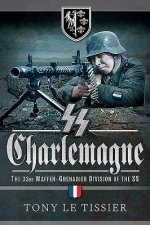
SS Charlemagne
356 Kč -

Between Giants
468 Kč -

German Panzers 1914-18
441 Kč -

War Like No Other
395 Kč -

Hommes et ouvrages de la ligne Maginot, Tome 4
1289 Kč -

Winter Uniforms of the German Army
2206 Kč
Osobní odběr Praha, Brno a 12903 dalších
Copyright ©2008-24 nejlevnejsi-knihy.cz Všechna práva vyhrazenaSoukromíCookies


 Vrácení do měsíce
Vrácení do měsíce 571 999 099 (8-15.30h)
571 999 099 (8-15.30h)